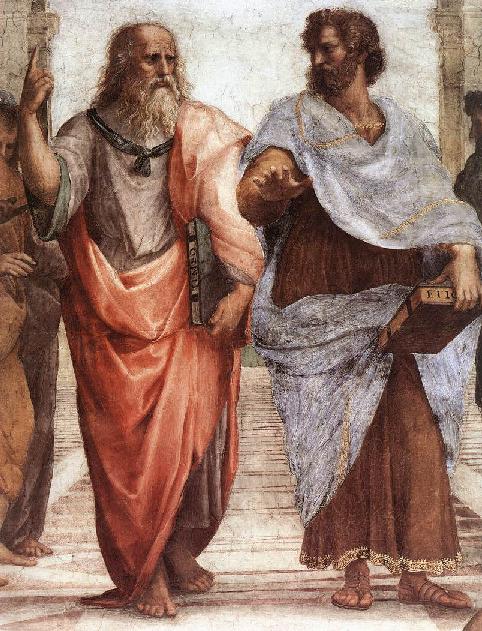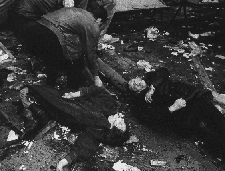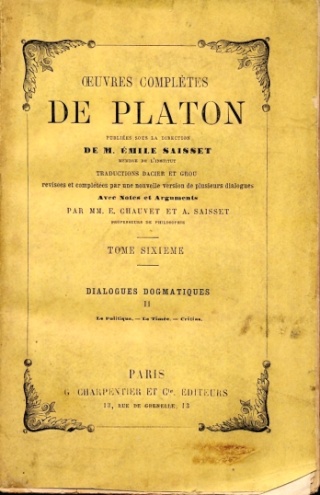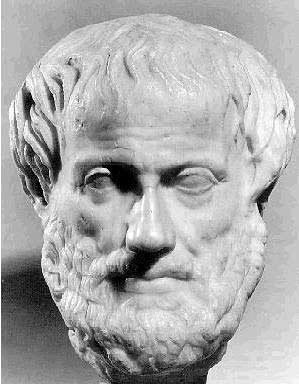A Peacekeeping General Recalls Sarajevo
By Susan McClelland (interviewer)
SUSAN MCCLELLAND:
In the former Yugoslavia, the United Nations was confronted with many
ideological questions including looking at its original mandate of not
interfering in civil war. Do you think this will spawn a review of the
U.N.'s original mandate?
LEWIS MACKENZIE: The United
Nations looks at its mandate every time a civil conflict occurs. Yet the
unchanging structure in the Security Council usually dictates that, no,
they won't get involved. For example, in spite of anarchy in Somalia,
this alone wasn't justification for the U.N. to go in. The justification
was the movement of refugees, which was viewed as a threat to
international peace and security. The U.N. has been extremely hesitant
to impose a solution on an internal problem. We will never see a
peacekeeping mission in the home turf of a permanent five member. Only
in Russia, and they invited the U.N into Georgia. But what would they do
if the Catholics called for intervention in Northern Ireland? If the
French Canadians cried out for help, would the Security Council send in
an intervention force? I think not. As for Bosnia, some said, "Put a
fence around the country. Give the warring parties all the weapons they
want and go in, two years later, with a plan to rebuild." The U.N.
ethically cannot accept this as a solution and therefore they did what
they could within their own rules. To change the rules could set a
dangerous precedent.
MCCLELLAND: You supported the United States's delayed involvement in the war. Can you explain why?
MACKENZIE:
The Duke of Wellington said that big countries don't fight small wars.
They would risk their credibility. Right now the United States needs to
be available for the "biggies" if they get out of hand - like North
Korea, Russia, China, and Iraq, for example. The U.S. risks their
credibility in getting involved in small wars, just like what happened
in Vietnam. Besides, the former Yugoslavia was in the European theater
and for the Europeans to say, "We can't put 40,000 troops into Bosnia
unless the Americans come along," I say, what a condemnation of NATO!
What have we been doing for the last 40 years if all these countries,
less America, can't go into Bosnia and sort this thing out? It was very
much the Europeans not wanting America to leave NATO. This was the
bigger issue. And that is the trouble when you get into the Security
Council. There is always a bigger issue, that being the national self
interests of the Permanent Five members, which rarely coincide. And, in
this case, the bigger issue - even the early recognition of Croatia and
Slovenia by Germany and the E.C. which started this thing - was driven
by the Maastricht Treaty, which was being debated at the time. As usual,
the former Yugoslavia became the pawn. Nobody anticipated that the
situation would turn out the way it did.
Right from the beginning,
with the Bosnian president Izetbegovic, I was adamant that the reason
his forces were screwing up the cease-fires and becoming as much a thorn
in my side as the Bosnian Serbs was that they expected the U.S. cavalry
to come over the hill and save them. And the United States was not
going to come because it was not in their self interest to do so.
Nonetheless, Izetbegovic's forces played the game very well. It was
expensive for them in life and limb. But they knew that ultimately, with
the proper public relations representation, the Americans would be
forced to come. And sure enough they did. So to go back to the original
question, the potential of U.S. involvement was the carrot that kept
this thing going.
MCCLELLAND: There are some who maintain
that the situation in the former Yugoslavia, and as seen in Kosovo
today, has the potential to move down into Albania, Macedonia, Greece
and Turkey. What is your opinion on this?
MACKENZIE:
Certainly the potential was there. Over the last month, however, there
has been no impact whatsoever into the surrounding areas, outside of
Kosovo. I spent a fair time with the president of Macedonia, who was
even surer that his population would be seriously affected. He spent a
great deal of money on his internal police force in preparation. But
nothing has happened outside the region. That is encouraging.
It
is important to note that the focus initially in Kosovo was on
Milosovic. He is still thought of by many as "the Butcher of the
Balkans." Well, one has to remember that Milosovic was a contender for
the Nobel Peace Prize after Dayton. What is being done in Kosovo is a
result of a liberation group, the Kosova Liberation Army, who are
defined as terrorists in CIA files. This liberation group decided to
internationalize themselves and their struggle, and they knew from
recent history in the Balkans that if they started to kill some Serb
policemen, the Serbs would do what they normally do - over-react and try
and sort out the problem by using heavy weapons like artillery on
civilian targets. This gets a lot of attention from the international
community but when people sat back and looked at this thing in the cold
hard light of day, they saw that this was an internal problem and the
people causing the problem are not all that nice either. So no, I don't
see the conflict in Kosovo spreading. I don't know if I would have had
the same answer a couple of months ago.
MCCLELLAND: There are many theories as to the spark that made conflict in the former Yugoslavia inevitable. What is your theory?
MACKENZIE:
A lot of people will say the spark was early recognition by the E.C.
led by Germany of Croatia. I think, however, that the spark could well
have been just after recognition, in the Krajina, among all the sniping
and ambushing. One incident involved a pizza salesman from Ottawa who
was the Minister of National Defence for Tudjman and who allegedly led a
patrol that killed several Serbians at a check point. He too knew that
the Serbs, with their overwhelming superiority in weapons, would
respond. So I would say that it is somewhere in the early tensions
between Croatia and Serbia that the hostilities began. Croatia saw its
new flag, for example, as being this wonderful historical and religious
symbol. The Serbs saw the red and white checkerboard as a reminder of
when the Croats were aligned to the Nazis during World War II. There is
fantastic polarization in the Balkans. And that early period, while
there was conflict in the Krajina, was when the real war began. People
in the area around southern Croatia and the Krajina bore a lot of the
responsibility for starting the war and Serbia must bear serious
responsibility for expanding it to a horrific level.
MCCLELLAND: You mentioned in your book about a
New York Times article that inaccurately portrayed the hostilities. Could you comment on the reporting that was done during the war.
MACKENZIE:
This is probably the hottest topic of the conflict. But I don't hold
the journalists responsible. Their reporting was driven by technology.
Before the war in Bosnia and, dare I say the Gulf, a reporter would put
something together, which would be sent back to an office in London,
Atlanta, or wherever, and staff would take this reporting and mix it
with that from other reporters, for there was no shortage of information
coming out of the war. Then the story went out to the public and the
public saw it in some context. In Bosnia, the reporting was live, and
therefore without context.
Another problem involved the
freelancers. In the beginning Martin Bell of the BBC brought all the
journalists together and said, "The best way for us to keep from getting
killed is to send out teams and pool our work." Then the freelancers
moved in. They came in brash and as stupid as anything and they would go
out and get right in the middle of a conflict and send these pictures
back home. What happened is that the head offices phoned Martin and
said, "You've got to get pictures like these." Christiane Amanpour from
CNN was being told, "You've got to get out there. We are being wiped out
by the other channels." It isn't that what was being shown were
fabrications. It was the fact that only a tiny bit of the overall
situation was being reported. Frequently I would be in the middle of a
crisis situation where people were being killed and someone would be
recording live. The footage was going up to a satellite and telecast
directly onto someone's television screen. How do you put that into
context? Talk about "Wag the Dog"! These reporters created tremendous
emotions based on 1/1,000 of what was going on. There was stuff that was
every bit as bad, if not worse, in the rest of the country. But the
whole world was focused in on Sarajevo. Why? Because the media was
living in the basement of the Sarajevo Holiday Inn. They were living on
one side of the conflict so they naturally recorded the war from one
side of the conflict. There should have been reporting from all sides.
The reporting had a tremendous impact on national foreign policies
around the world.
MCCLELLAND: You talked in your book about
the market bombings. In light of some reports that question who was
responsible for the massacres, have you changed your own opinion?
MACKENZIE:
My response to this issue is part of the reason why I have been
frequently accused of being pro-Serbian. My book says quite clearly that
we will never know who did the breadline massacre. People say I am
accusing the Bosnians of doing it to themselves. And I say, no,
absolutely not! The people who had the most to gain from any number of
atrocities in Sarajevo were the people who were selling eggs on the
black market for five marks each. It was the criminal element that was
interested in keeping the war going because they were getting really
rich. So there was a tremendous amount of self interest for them to do
this. Sure there was also self interest on the part of the Bosnian
government to generate sympathy. It wouldn't have been the first time in
history that events were staged to drive policy. But really, when I say
it could have been the Bosnian side, that does not mean it was
government policy; it could have been one of many criminal elements, a
freelance unit or, equally, it could been the Bosnian Serb side.
MCCLELLAND: You mentioned being accused of being pro-Serbian. Would you like to address some of the allegations made against you?
MACKENZIE:
It started after my appearance in front of the U.S. senate and
congressional committees in Washington. Also, to a certain extent, in
Sarajevo because I was seeing Karadzic on a daily basis. Izetbegovic was
livid because he saw me representing the international community and he
felt that I should be helping him because he represented a country that
was a member of the U.N. On one occasion I said I wouldn't go and see
Karadzic, even though my mandate from the Security Council was to
maintain contact with both sides in the conflict and use my good offices
to do what I could to reach some sort of accommodation. Izetbegovic
responded by saying, "OK, you can go and see Karadzic," and he
subsequently explained why to his people on TV. But nobody had
television because the power was out and I was therefore condemned for
dealing with "the aggressor."
Then accusations started to come out
that my wife is a Serb - she is a McKinnon, of Scottish descent. My men
were also being threatened with death because they worked for me, which
is one of the reasons I left. But when I came home, appeared in front
of the U.S. Senate and said, "America, don't get involved," that's when
the allegations started, big time.
The major allegation,
fortunately, has been exposed by a German reporter as part of the Herak
fabrication. Herak was a Bosnian Serb soldier who had been captured by
the Bosnian government. He said in an interview with John Burns, a
Canadian Pulitzer Prize winner with
The New York Times, that
General MacKenzie would come over to Sonya's Cafe in northern Sarajevo
and pick up Muslim girls, who would subsequently be found dead with
their throats cut. Burns asked him how he knew it was me. And he
responded by saying he recognized me from television. Herak said I was
wearing three gold stars and Burns knew that we don't wear stars in
Canada. Herak also said the incident took place around the middle of
August and Burns knew I had left on the first of August.
Burns,
however, turns to the government representative there at the time and
says, this is obviously not true and don't let the MacKenzie aspect of
the story get out for if it does it will ruin the credibility of the
rest of the story I am writing about Herak.
The story about me
broke about 48 hours later when the Bosnia judiciary said they were
assigning a lawyer and charging me with war crimes. At that time, Burns
was back in the U.K. and called me. He said that he was absolutely
horrified that this story would get out because it would erode the
credibility of the article he was writing. Burns later won a Pulitzer
prize for his article on Herak.
The Canadian government, myself,
and the military decided to take a low profile on the allegations
because the North American media refused to carry the story. But the
story broke on the day of the Islamic conference in Riyadh, Saudi Arabia
when Izetbegovic arrived there.
Sonya's Cafe is where the
Serbians were allegedly keeping prisoners of war. During my time there,
which was at the height of the war in the early days, we couldn't even
get to that part of town. Not only that, we were alleged to have shown
up in jeeps. The U.N. didn't have jeeps.Yet the real convincing piece of
evidence for the people of Sarajevo was a photograph taken on my last
day there, which was July 31. Four secretaries from my headquarters came
in to see me. I had gotten them out when the war started - one of them
had a child - so they were grateful because I had overruled a civilian
U.N. guy who said they couldn't leave Sarajevo. They returned shortly
after the U.N. came back to Sarajevo. They asked if they could have
their picture taken with me. I put my arms around the four of them. They
were all crying.
I guess it was about two months later, a
Canadian doctor came back from Sarajevo. He told me that a picture was
being circulated around Sarajevo of four crying girls with me in the
middle. People are saying that these are the girls I raped and murdered
on my last day there. When I went back to do the documentary, three of
the same girls met me when I arrived at Sarajevo airport.
Nevertheless,
these allegations are still brought up in international conferences -
particularly German or Islamic ones. I went to my lawyer and asked how I
could deal with this. If I am a war criminal than let's get this out.
Let me go to The Hague and testify. The bit that really bothers me is
that Canada - such a generous nation and considering all the money we
have given for reconstruction in Bosnia - to the best of knowledge the
Canadian ambassador in Sarajevo has never protested or asked for a
withdrawal of the charges.
Subsequently, the entire Herak thing,
including my alleged role, was revealed as a fabrication. It was a
little show put on to elicit sympathy. The four people I allegedly
killed have all been found alive. If any of this was true - even one
percent - it would have been on television. I had 32 of the top
journalists living in my headquarters in Sarajevo. I went nowhere
without a television camera in tow. So if I had gone to Sonya's Cafe or
anywhere else, ten television journalists would have come with me.
I
inadvertently gave my accusers more fuel for the fire a few months
after my return from Sarejevo. I was responsible for speaking
engagements - sometimes three a day.
I spoke to the Heritage
Foundation in Washington and a few weeks later, I was informed that the
event was partially subsidized by a Serbian lobby group. I had no idea
at the time the contract was signed so I gave the money, $15,000, to
AIDS research. Needless to say, my critics took this as confirmation of
my alleged pro-Serbian stance.
MCCLELLAND: The majority of
Canadians don't like to admit the parallels between the former Yugoslav a
and things that have and are happening in Canada. On the political
side, do you see parallels between, say, Canada taking the issue of
secession to the Supreme Court and lessons we have learned from
Yugoslavia?
MACKENZIE: We are the world's
industrial-strength standard of compassion, tolerance, and compromise,
although we don't often give ourselves credit for this. Other countries
give us the credit. I have said in many presentations that if we fail at
this, if secession in this country degenerates into violence and civil
conflict, you can imagine the message that it will send to the rest of
the world. If Canada can't sort out this problem, then my God, what hope
is there for the rest of the world?
MCCLELLAND: What lessons can the world learn from Yugoslavia?
MACKENZIE:
As for actual peacekeeping operations in the Balkans, the American
clandestine intervention which armed the Croats and trained them to
achieve success on the ground in the Krajina and Bosnia stopped the war
for now. The question is, for the long term will it be successful? I
think a bad lesson that has been derived from that particular experience
is that an awful lot of people look to air strikes to solve problems.
In Yugoslavia, they gave the appearance of driving the people to Dayton,
where in fact they didn't. It was the changing situation on the ground
due to the Croatian offensive and Milosovic's lack of response that took
the delegates to Dayton.
MCCLELLAND: One of the arguments
you hear today as a result of the Balkan experience is whether military
personnel make the best peacekeepers. Some question how a soldier,
trained for war, can go into a country with a mandate to preserve peace.
Some soldiers in the U.S. military say that peacekeeping is eroding and
weakening the warrior ethic. What are your comments on this?
MACKENZIE:
I get asked this question probably a dozen times a year by American
audiences, especially military audi- ences. For many years I answered
no. Peacekeeping does not erode the warrior ethic. Yet my answer these
days is that there is a danger of just that. But it is not in the
military. The danger is in the mind of the citizens of the country the
military represents. How many times have you heard Canada described as a
peacekeeping nation? We have probably killed more enemy per capita than
any other country in the last century - in World War I, II, and Korea -
yet we still see ourselves as a purely peacekeeping nation. Therefore,
when it comes to dangerous peace operations, we do what we did in the
Gulf War - we say to the U.N.,"We'll give you our sons and daughters but
make sure nobody gets hurt." We kept our sailors out in the Persian
Gulf, far away from the land theater. We sent F18s but we only had them
fly into Iraq on very rare occasions. The rest of the time our planes
just circled around our ships, which was the safest thing they could do.
That was under our government's direction. So in the decision making of
the government and the minds of the population, yes, peacekeeping
missions erode the warrior ethic. As a result, our soldiers on the
ground work very much handcuffed and their reputation with allies is
suffering.
But as far as the soldiers themselves go, no, I don't
believe they are weakened because of peacekeeping duty. Why? Because a
peacekeeper may be stopping traffic on one day and on the next, fighting
his or her way out of the situation. The escalation can be so dramatic
and occur so rapidly that peacekeeping must be a soldier's
responsibility. It is also important to note that peacekeeping is a bit
of a macho game. If I am dealing with a soldier on the Serb, Muslim, or
Croatian side there is a certain amount of respect between us for what
we do. If all of sudden I showed up as a sort of constabulary
conciliator from Canada, having just been issued a uniform and given a
weapon, there is not the same rapport. Soldier peacekeepers can sit down
with the Israelis, the Syrians, and the Iraqis and talk tactical
professional arrangements for cease-fires.
MCCLELLAND: What do you think is the greatest threat to world security right now?
MACKENZIE:
Civil war. Internal civil conflict. There are 43 to 44 civil conflicts
going on as we speak and few of them cross recognized borders. A lot of
those borders, particularly in Africa, were drawn by politicians after
World War I and World War II. And a lot of those borders don't make
sense today. I absolutely agree that the U.N. needs to look at its
mandate as a result. Maybe there are other ways than U.N. intervention
to deal with civil conflict. Maybe there are other ways to bring
pressure on the belligerents. But first you have to recognize civil
conflict. I drove Izetbegovic, the European community, and the U.N. mad
for the first couple months of the war because they didn't want us
talking to the Bosnian Serbs. I am a simple soldier saying "these guys
are half or more of the problem." Michael Ignatieff said it best: At the
end of the Cold War, the two teams representing the East-West conflict
self-destructed. Those teams had client states, so everybody knew what
side they were on. And when the Cold War pulled the Iron Curtain down, a
lot of people, a lot of countries, needed a security blanket, be it
color, religion, territory or a combination of these things. Everyone
needs to feel part of a group. People are sorting out their groups now
and they are doing it by way of conflict. That is the challenge the
future faces.
Susan McClelland is an Ottawa journalist.




















